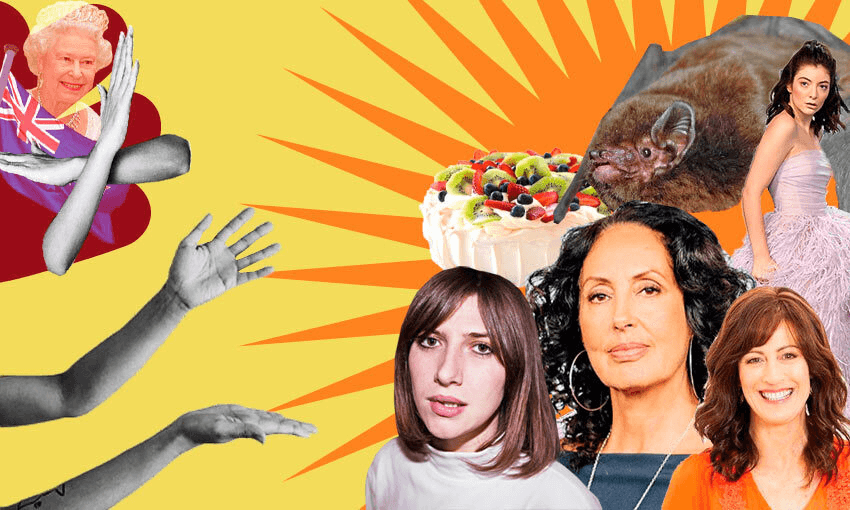Shifting to a republic requires some serious constitutional contemplation, which Aotearoa should probably get on with. But, if we follow the model of Barbados, there’s an even more important decision to make.
At midnight on Tuesday, 55 years after declaring its independence from Britain, Barbados became a republic by renouncing the Queen as its head of state and replacing her with a parliamentary-elected, Barbados-born president.
At the risk of rehashing an old beef, I guess the prospect of having a Donald Trump-like figure rise to power just wasn’t enough to convince them of the benefits of retaining Queen Liz (and then King Charles, or William, or whomever) as their head of state. Rather, as Barbadian poet Winston Farrell said at the ceremony to mark the change, “It is about us, rising out of the cane fields, reclaiming our history.”
Of course, Barbados has some pretty strong reasons for wanting to sever any remaining symbolic connections with the British empire (*cough* slavery *cough*). But we here in Aotearoa have our own complicated history with colonialism that makes our lingering constitutional links to the United Kingdom pretty suspect. And, really, when you look at the smattering of places around the globe that just haven’t got around to cutting that final colonial cord, our failure to do so does look a little bit lazy.
For that reason alone, Jacinda Ardern’s prediction that this country will become a republic “within my lifetime” doesn’t seem a particularly brave one to me – especially given that as a 41-year-old woman, she ought to expect to be around for at least another four decades. Equally, though, she’s probably right that it isn’t really an issue that people particularly care about, while a majority of those who have an opinion seem happy to perpetuate the status quo. One day we’ll do the sort of heavy-lifting constitutional contemplation needed to support a shift to a republic. But it won’t be today, nor tomorrow, and maybe not even until Ardern is in the midst of planning her 50th birthday bash.
However, of far greater import than finally reclaiming a fully independent national identity was Barbados’s simultaneous decision to officially recognise Rihanna as their “national hero”. This strikes me as a position that every country, Aotearoa included, should have. That being so, on some future day when we declare ourselves royal family free, who should have the kākahu of “Aotearoa New Zealand’s national hero” bestowed upon them? Some contenders, and an assessment of their claims to the title:
Lorde
PROS The most obvious local analogue to Rihanna: global pop recognition; connection to a famous perfume brand; shared propensity to dance around on beautiful beaches with attractive friends.
CONS Revealed fondness for fennel (aka “stink weed”); apparently can’t drive, which is super annoying for everyone else on road trips. No one really wants to always be ferrying around a deadbeat who lounges across the backseat getting stoned from quirky vegetable bongs.
Aldous Harding
PROS Offers a slightly more culturally edgy option than Lorde; “an unbiddable artist”, apparently; a fact that then annoys all the really right people.
CONS Could cause a national schism with those incensed that Hollie Fullbrook or Marlon Williams or Nadia Reid weren’t chosen instead. Can the nation survive that kind of division in our alt-folky-country community at this present time?
Moana Maniapoto
PROS Deliverer of bangers with a message; truth-teller on Māori Television; mana wahine embodied.
CONS Very high chance of “getting political”, and will the Ian McKelvie-led National government that declares Aotearoa New Zealand a republic in 2025 risk having a political national hero? (It’s going to be a weird next election – don’t ask.)
Neil Finn
PROS Likeable enough; knows his way round a pop tune; seems like a good dad.
CONS The bulk of his fame comes from being in an Australian band (in the same way as Die Hard is not a Christmas movie, despite desperate attempts to argue differently, now fight me).
The Briscoes lady
PROS Universal recognition; invariably sunny disposition; deliverer of constantly good (if potentially misleading) news.
CONS Does anyone know her real name (it’s Tammy Wells) and might the phrase “Aotearoa New Zealand’s national hero the Briscoes lady” open us up to gentle global mockery? Also, “the Briscoes lady” commonly is used without a possessive apostrophe, which is just wrong and I will fight you again.
Taika Waititi
PROS Comic genius; director-du-jour; positive enabler of indigenous film and screen artists.
CONS Already professionally overburdened – can he really commit to giving his best performance as a true national hero, or will he just dial in the role like he did with Free Guy?
Hilary Barry
PROS Comic genius; don’t take no shit; the visitor every student flat needs and wants.
CONS Side fringe. Disqualifying, I am reliably informed.
A pavlova
PROS Omnipresent; can be topped with other national icons such as kiwifruit or Wattie’s canned peaches; would annoy Australia, if they bothered to notice.
CONS Declaring something made out of egg white, vanilla essence, white vinegar and white sugar our national hero seems apt but also deeply dispiriting.
A pekapeka-tou-roa
Haven’t this nation’s long tailed bats already pushed their luck far enough? Get back in your lane, winged mouse.
Sir Dave Dobbyn
No. Just … no.



